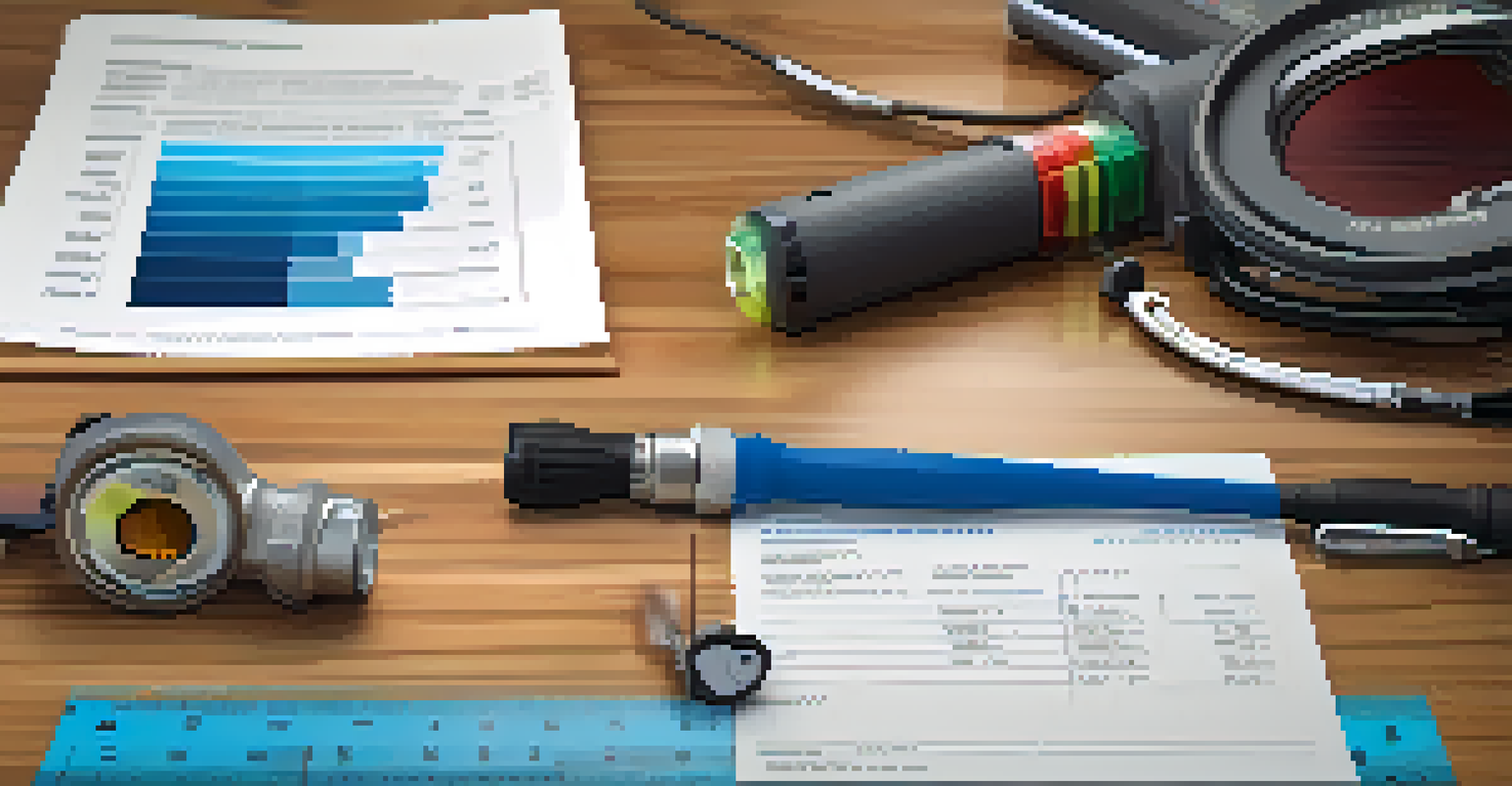The Value of Home Inspections for Property Investors

Understanding the Basics of Home Inspections
Home inspections are thorough evaluations of a property's condition, typically conducted before a purchase. They uncover hidden issues that may not be visible during a casual walk-through. For property investors, understanding this process is crucial to ensure a smart investment.
An investment in knowledge pays the best interest.
During an inspection, a certified professional examines various aspects of the home, including the structure, systems, and safety features. This can prevent unexpected expenses down the road by identifying potential problems early. Think of it as a health check-up for the property; it reveals underlying issues before they escalate.
Investors who skip this step might find themselves facing costly repairs or renovations soon after purchase. In the world of property investment, knowledge is power, and a home inspection provides invaluable insights into what you're really buying.
Identifying Hidden Costs Before You Buy
One of the most significant benefits of a home inspection is uncovering hidden costs that could derail your investment plans. Issues like outdated electrical systems, plumbing leaks, or roof damage can lead to hefty repair bills. By identifying these problems upfront, you can budget accordingly or negotiate repairs with the seller.

Imagine you're drawn to a charming property, but an inspection reveals extensive mold damage in the basement. This could cost thousands to remediate, and without an inspection, you might have unwittingly stepped into a financial pitfall. Knowing these details allows for informed decision-making.
Home Inspections Uncover Hidden Issues
Thorough property evaluations reveal potential problems before they escalate into costly repairs.
In essence, home inspections serve as a financial safety net, preventing surprises that can drain your investment funds. They empower investors to make offers based not just on aesthetics but on a comprehensive understanding of the property's true condition.
Negotiating Power: Leverage Your Inspection Report
An inspection report is more than just a list of problems; it's a powerful tool for negotiation. If the inspection reveals significant issues, investors can request repairs or even a price reduction from the seller. This can lead to substantial savings or a better deal overall.
The best way to predict the future is to create it.
For instance, if your inspection uncovers a faulty HVAC system, you can leverage this information to negotiate a lower purchase price. Sellers are often more willing to negotiate when faced with documented issues, making your inspection findings a strategic advantage.
By approaching negotiations with clear, factual data from the inspection, you're not just relying on intuition; you're armed with evidence. This level of preparedness can make all the difference in securing a profitable investment.
Understanding Market Value Through Inspections
Home inspections help investors gauge the true market value of a property. By assessing its condition, you can better understand how it compares to similar homes in the area. This knowledge is crucial for making informed investment decisions.
An inspection can reveal whether a property is priced fairly or if it’s inflated due to cosmetic upgrades that might not hold up over time. For example, a freshly painted interior might look appealing, but underlying issues can indicate that the property is not worth the asking price.
Negotiation Leverage from Reports
Inspection findings can empower investors to negotiate repairs or price reductions with sellers.
With a clearer picture of a property's condition, investors can confidently decide whether to pursue or pass on an investment. Ultimately, this insight can lead to more successful property transactions.
The Importance of Safety and Compliance Checks
Home inspections play a vital role in ensuring that properties comply with safety standards and regulations. This is especially important for investors who plan to rent or sell the property in the future. An inspection can uncover safety hazards that need addressing before tenants or buyers move in.
For instance, issues like outdated smoke detectors, unsafe stair railings, or electrical hazards can pose serious risks. An inspection helps identify these concerns, allowing you to create a safe living environment for future occupants. Safety should never be an afterthought in property investment.
Moreover, ensuring compliance can save you from potential legal headaches down the line. By proactively addressing safety issues, you're not just protecting your investment, but also your reputation as a responsible property owner.
Building Long-Lasting Relationships with Inspectors
Forming a relationship with a reliable home inspector can be a game-changer for property investors. These professionals can become invaluable allies, providing insights not just during a single transaction but throughout your investment journey. Trustworthy inspectors often have a wealth of knowledge about local properties and market trends.
By having a go-to inspector, you can streamline your property evaluation process. You'll benefit from their expertise, gaining insights that can help shape your investment strategy. This relationship also allows for quicker turnaround times when you need inspections for multiple properties.
Safety Compliance is Essential
Home inspections ensure properties meet safety standards, protecting future occupants and investments.
Ultimately, having a solid partnership with an inspector can enhance your confidence in making investment decisions. This connection can lead to better-informed choices and more successful outcomes in your property endeavors.
The Role of Technology in Modern Home Inspections
Technology has transformed the home inspection process, making it more efficient and comprehensive than ever before. From drone inspections of roofs to infrared cameras detecting heat loss, modern tools provide a clearer picture of a property's condition. This tech-driven approach enhances the accuracy and thoroughness of inspections.
For property investors, this means more detailed reports and insights. With the ability to access high-quality images and data, you can make better-informed decisions. For example, a thermal imaging scan can reveal hidden leaks behind walls that might otherwise go unnoticed.

Embracing technology in home inspections not only saves time but also enhances your investment strategy. By leveraging these advancements, you can stay ahead of the curve and make savvy choices in your property investments.
Conclusion: Investing Wisely with Home Inspections
In conclusion, home inspections are an essential step for property investors looking to safeguard their investments. They provide crucial insights into the condition of a property, helping to identify hidden costs, negotiate better deals, and ensure safety compliance. By prioritizing this step, you set the foundation for a successful investment journey.
The knowledge gained from a thorough inspection empowers you to make informed decisions, ultimately leading to stronger returns on your investment. Plus, building relationships with inspectors and leveraging technology can enhance your investment strategy.
As you navigate the complex world of property investing, remember that a home inspection is not just an expense; it's a valuable investment in your future success. With the right tools and knowledge, you can unlock the potential of every property you consider.